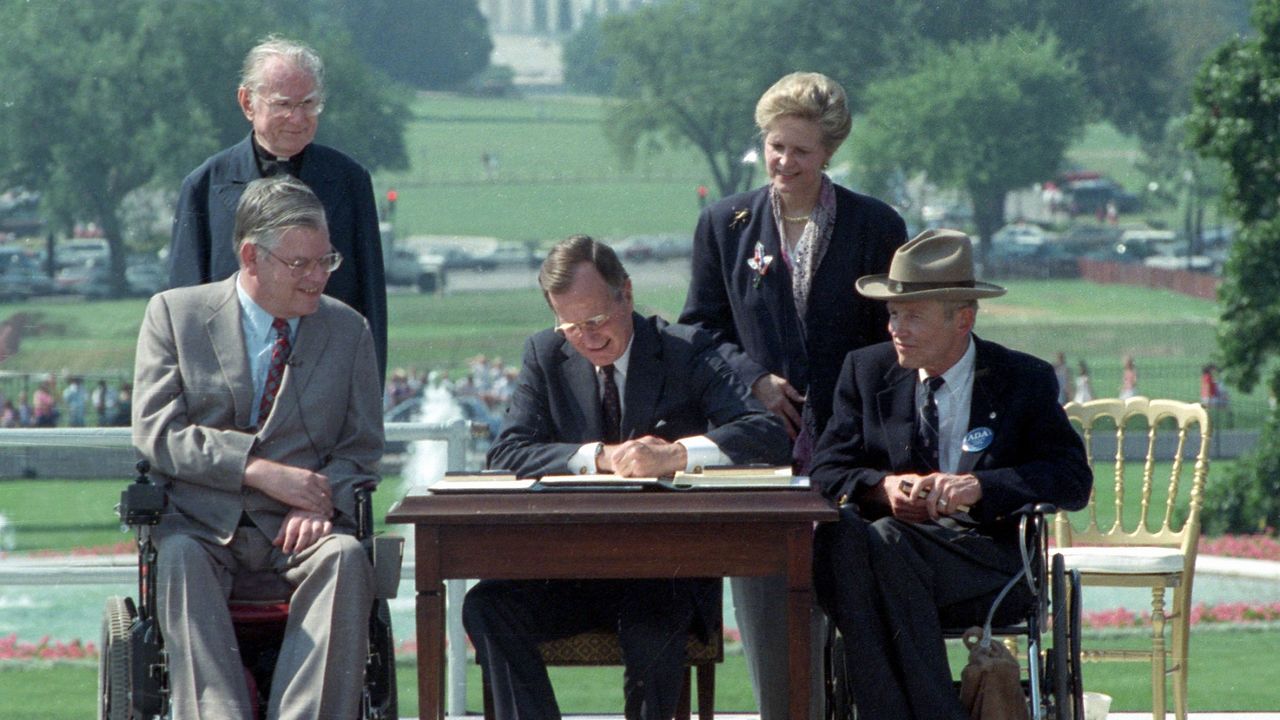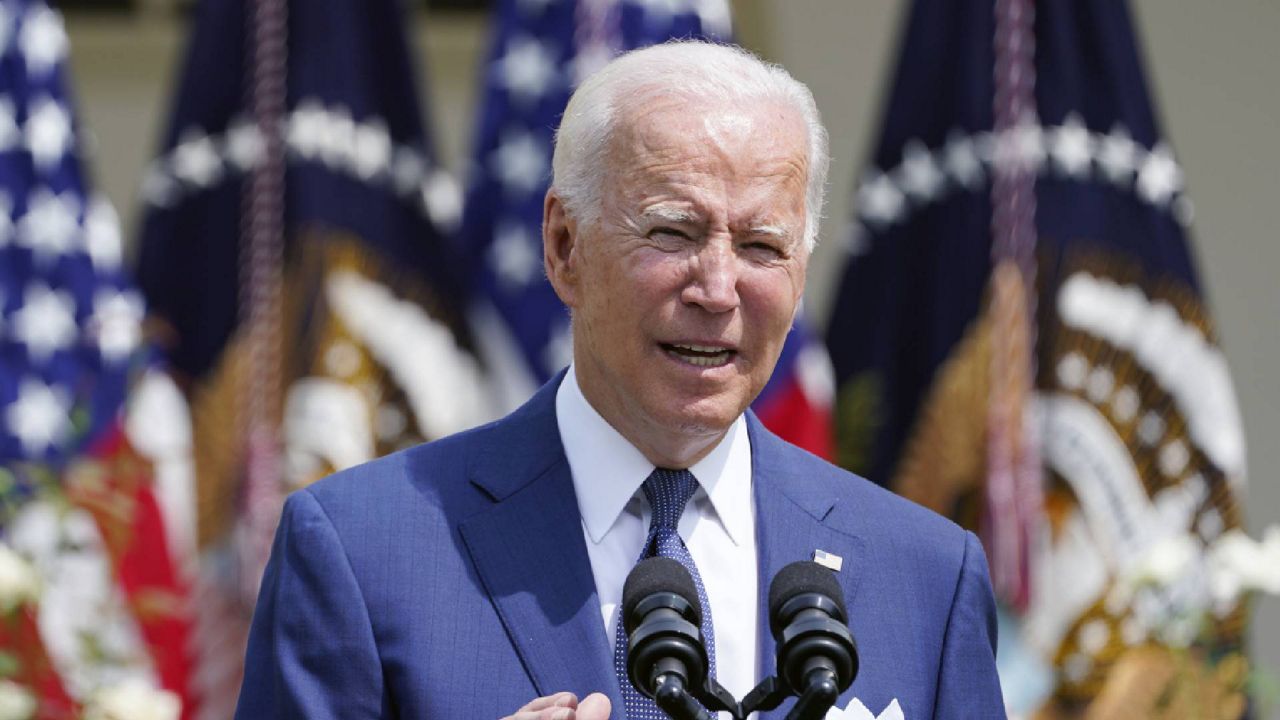President Joe Biden on Monday celebrated the 31st anniversary of the Americans with Disabilities Act, a landmark civil rights bill signed into law in 1990 which prohibits discrimination based on disability in areas such as education, employment, transportation and others aspects of life.
Biden, who co-sponsored the bill as a senator, signed a proclamation marking the anniversary and reaffirming his administration's commitment to the measure in a ceremony at the White House Rose Garden Monday morning. The Biden administration also released guidelines and support for individuals experiencing long-term symptoms of COVID-19, or "long COVID."
"All of you dealing with disabilities: you are an inspiration to all of us, I really mean that," the president said Monday.
“Many of us can still recall in America where a person with disability was denied service in restaurants and grocery stores — and could be,” he said.
“Then we passed the ADA and made a commitment to build a nation for all of us — all of us,” he added.
The proclamation signed by President Biden Mondau not only marked 31 years since the law was signed by President George H.W. Bush (a Democratic bill signed by a Republican president, Biden noted) but also included new recognition for Americans suffering long term symptoms of COVID-19.
"Many Americans who seemingly recover from the virus still face lingering challenges, like breathing problems, brain fog, chronic pain or fatigue," Biden said. "These conditions can sometimes can sometimes rise to the level of a disability."
The Office for Civil Rights at the Departments of Health and Human Services (HHS) and the Department of Justice (DOJ) released guidance detailing how some individuals suffering from long COVID may have a disability under various civil rights laws that entitles them to protection from discrimination. The Department of Education Office for Civil Rights and Office of Special Education and Rehabilitative Services also released information addressing the needs of children with long COVID who may be children with disabilities.
"The ADA has brought down much of that wall of exclusion," Susan Rice, Director of the U.S. Domestic Policy Council, wrote on Twitter. "Ramps have been installed in public places. Service animals are increasingly welcomed. Technology has been made more accessible to those who are blind and deaf."
"But more work remains," she added.
Biden also outlined actions that his administration has taken, incluidng by providing billions of dollars in funding explicitly for people with disabilities – including $2.58 billion for elementary and secondary education students with disabilities released by the Department of Education on July 1.
Then-President Bush, who signed the bill into law in 1990, called it a "historic opportunity" which "signals the end to the unjustified segregation and exclusion of persons with disabilities from the mainstream of American life."

"As the Declaration of Independence has been a beacon for people all over the world seeking freedom, it is my hope that the Americans with Disabilities Act will likewise come to be a model for the choices and opportunities of future generations around the world," the 41st president remarked.



